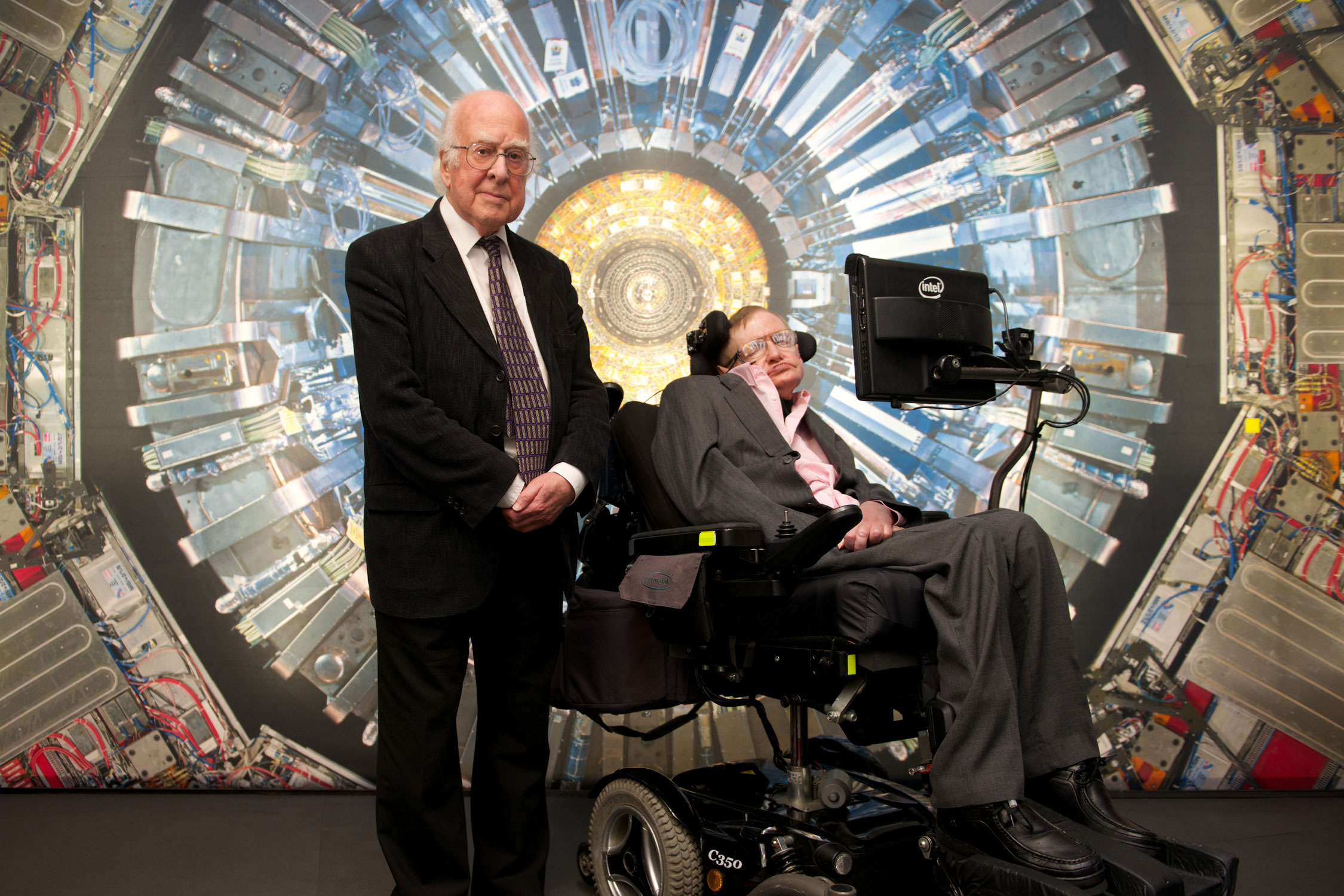This week we were joined by two of the world’s most eminent scientists, Stephen Hawking and Peter Higgs, to celebrate the opening of our Collider exhibition.

The exhibition, open until May 2014, explores the people, science and engineering behind the largest scientific experiment ever constructed, the Large Hadron Collider at CERN.
After a packed event in Parliament on Monday evening (more about that here), Higgs and Hawking joined us for a full day of public events on Tuesday.
The day began with Professor Peter Higgs answering questions from a lucky group of students from across the UK in our IMAX theatre – with thousands more watching the Guardian live stream online.
Higgs talked about his scientific hero Paul Dirac (who went to Peter’s school), being nominated for the Nobel Prize and whether discovering the Higgs boson was a good thing for physics. “Do you expect me to say it’s a bad thing,” joked Peter.
I always found physics rather dull at school. Chemistry was far more interesting – Peter Higgs.
The afternoon featured a spectacular double-bill of science and culture, with novelist Ian McEwan and theoretical physicist Nima Arkani-Hamed in conversation and an audience with Stephen Hawking.
Presented by broadcaster Martha Kearney, McEwan and Arkani-Hamed shared their thoughts on similarities and differences between the two cultures. Professor Arkani-Hamed explained that the gulf between arts and science is one of language, often mathematics, with McEwan discussing the obsessive element in science – the pursuit of something larger than ourselves – and it’s similarity to the arts.
I like to think of science as just one part of organised human curiosity – Ian McEwan.
It was a very rare treat, and a huge honour, to journey into time and space with Stephen Hawking. Stephen shared that the Science Museum was one of his favourite places, “I have been coming here for decades. And that simple fact, in itself, tells quite a story.”
He went on to discuss his early work on black holes (Hawking would like the formula he wrote to be on his memorial) and the information they contain, “Information is not lost in black holes, it is just not returned in a useful way. Like burning an encyclopaedia, it’s hard to read.”
Hawking finished his talk with a plea to us all to be curious.
“The fact that we humans, who are ourselves mere collections of fundamental particles of nature, have been able to come this close to an understanding of the laws governing us, and our universe, is a great triumph.
So remember to look up at the stars and not down at your feet. Try to make sense of what you see and hold on to that childlike wonder about what makes the universe exist.”
As the day ended, the recent Nobel Prize winner and our most famous living scientist were given a tour of Collider.

We’ll leave the final word to Ali Boyle, the Collider exhibition curator.